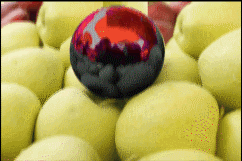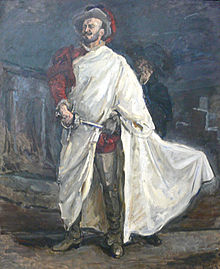13 Δεκεμβρίου 2012
MOMAPS1
http://www.matthewmarks.com/books-and-posters/jasper-johns_4/jasperjohnsnewsc00wint#page/n51/mode/2up
http://www.youtube-nocookie.com/embed/3pTVbQilDqY?list=EC0FA67827C82639EB&hl=en_US
http://www.youtube-nocookie.com/embed/FhmmxpfdjAM?list=ECBA510603FF830F25&hl=en_US
[youtube https://www.youtube.com/watch?v=EAD_0oiRZJI]
[youtube https://www.youtube.com/watch?v=1QHwwRfHRmY?list=ECBA510603FF830F25&hl=en_US]

Ellsworth Kelly
Kelly (born 1923) has been the subject of major exhibitions at The Museum of Modern Art, the Whitney Museum of American Art, and the Solomon R. Guggenheim Museum, New York, and his work is in many public collections, including those of the Centre Pompidou, Paris, the Museo Nacional Centro de Arte Reina Sofía, Madrid, and Tate Modern, London. Kelly lives and works in Spencertown, New York.
<img alt="Purple Relief over Black 2002 Oil on canvas, two joined panels 80 x 77 1/2 x 2 5/8 inches; 203 x 197 x 7 cm” src=”http://prod-images.exhibit-e.com/www_matthewmarks_com/bc01b265.jpg” /><img alt="Red Black White 2004 Oil on canvas, three joined panels 84 1/4 x 59 inches; 214 x 150 cm” src=”http://prod-images.exhibit-e.com/www_matthewmarks_com/7bf68075.jpg” style=”background-color: transparent; font-size: 12px; line-height: 22px;” /><img alt="Dark Blue Relief 2008 Oil on canvas, two joined panels 80 x 80 inches; 203 x 203 cm” src=”http://prod-images.exhibit-e.com/www_matthewmarks_com/34066004.jpg” style=”background-color: transparent; font-size: 12px; line-height: 22px;” /><img alt="Yellow Relief over Red 2004 Oil on canvas, two joined panels 80 x 83 x 2 3/4 inches; 203 x 211 x 7 cm” src=”http://prod-images.exhibit-e.com/www_matthewmarks_com/f2dca94b.jpg” style=”background-color: transparent; font-size: 12px; line-height: 22px;” /><img alt="Blue Tablet 1962 Oil on canvas, two joined panels 92 x 92 x 4 1/2 inches; 234 x 234 x 12 cm” src=”http://prod-images.exhibit-e.com/www_matthewmarks_com/268d1f6f.jpg” style=”background-color: transparent; font-size: 12px; line-height: 22px;” /><img alt="Untitled 2005 Painted stainless steel and aluminum 26 x 16 x 6 feet; 8 x 5 x 2 meters” src=”http://prod-images.exhibit-e.com/www_matthewmarks_com/1837234a.jpg” style=”background-color: transparent; font-size: 12px; line-height: 22px;” />
RED COLLECTIONS -http://en.wikipedia.org/wiki/Red

http://en.wikipedia.org/wiki/Red

Seduction, Sexuality and Sin
O MARE MARE MAR
Seduction
History
Either/Or
| Either/Or | |
|---|---|
 Title page of the original Danish edition from 1843. |
|
| Author(s) | Søren Kierkegaard |
| Original title | Enten-Eller |
| Country | Denmark |
| Language | Danish |
| Series | First authorship (Pseudonymous) |
| Genre(s) | Philosophy |
| Publisher | University bookshop Reitzel,Copenhagen |
| Publication date | February 20, 1843 |
| Published in English | 1944 – First Translation |
| Pages | 800+ |
| Followed by | Two Upbuilding Discourses, 1843 |
The Middle Ages are altogether impregnated with the idea of representation, partly conscious, partly unconscious; the total is represented by the single individual, yet in such a way that it is only a single aspect which is determined as totality, and which now appears in a single individual, who is because of this, both more and less than an individual. By the side of this individual there stands another individual, who, likewise, totally represents another aspect of life’s content, such as the knight and the scholastic, the ecclesiastic and the layman. Either/Or Part I p. 86-87 Swenson
Elena Fiore
American Beauty (film)
| American Beauty | |
|---|---|
 Theatrical release poster |
|
| Directed by | Sam Mendes |
| Produced by | Bruce Cohen Dan Jinks |
| Written by | Alan Ball |
| Starring | Kevin Spacey Annette Bening |
| Music by | Thomas Newman |
| Cinematography | Conrad Hall |
| Editing by | Tariq Anwar Christopher Greenbury |
| Distributed by | DreamWorks Pictures |
| Release date(s) |
|
| Running time | 122 minutes |
| Country | United States |
| Language | English |
| Budget | $15,000,000 |
| Box office | $356,296,601[1] |
DSGHWGWRTGWRTG
Seduction, Sexuality and Sin
Ellsworth Kelly
Ellsworth Kelly, evading critical attempts to classify him as a Color Field, hard-edge, or Minimalist painter, has redefined abstraction in art, establishing himself through his drawings, paintings, sculptures, and prints as one of the most important artists working today. Kelly’s visual vocabulary is drawn from observation of the world around him—shapes and colors found in plants, architecture, shadows on a wall or a lake—and has been shaped by his interest in the spaces between places and objects and between his work and its viewers. He has said, “In my work, I don’t want you to look at the surface; I want you to look at the form, the relationships.”
Kelly (born 1923) has been the subject of major exhibitions at The Museum of Modern Art, the Whitney Museum of American Art, and the Solomon R. Guggenheim Museum, New York, and his work is in many public collections, including those of the Centre Pompidou, Paris, the Museo Nacional Centro de Arte Reina Sofía, Madrid, and Tate Modern, London. Kelly lives and works in Spencertown, New York.
ΚΡΕΟΠΩΛΕΙΟ
1. κρεοπωλείο
| Ορισμός: |  |
7 |  |
| Λήμμα: |  |
8 |  |
1. Ως εμφάνιση: Ο πολύ χοντρός άνθρωπος. Δηλαδή αυτός που έχει κρέατα όχι μόνο για τον εαυτό του, αλλά και για να πουλήσει το απόθεμα σε άλλους. Το -πωλείο εδώ μπορεί να συσχετισθεί και με το -εμπορας, λ.χ. στα κακαδέμπορας, κουραδέμπορας, όπου κάποιος εμφανίζεται να προτείνει προς πώληση αηδιαστικά μέρη του κορμιού του (και μεταφορικώς βεβαίως) ή με το αγγλικό -monger. Στο κρεοπωλείο βέβαια η έμφαση είναι περισσότερο στην περίσσεια των κρεάτων που επαρκούν και για εξαγωγή. Κυρίως λέγεται ως κινητό κρεοπωλείο.
2. Στο μπουρδελοϊδίωμα είναι περίπου συνώνυμο του μπριζολάδικο, δηλαδή σημαίνειευαγές ίδρυμα όπου προσφέρεται πλήρες σεχ. Βέβαια πρόκειται περισσότερο για ασθενή μεταφορά παρά για παγιωμένο τεχνικό όρο, όπως το μπριζολάδικο. Μια μεταφορά, η οποία έχει κάπως ηθικολογική χροιά και καυτηριάζει το γεγονός ότι πωλείται πλήρες σεξ, ως μή όφειλε. Λ.χ. θα χαρακτηριστεί λιγότερο ως κρεοπωλείο ένα μπουρδέλο, ενώ περισσότερο ένα στριπτιτζάδικο ή μασατζίδικο ή άλλα μέρη που δεν προσφέρουν επίσημα παρόμοιες υπηρεσίες. Η μεταφορά κρεοπωλείο θίγει εν προκειμένω α) το ότι δεν υποτίθεται ότι προσφέρεται η πλήρης αυτή υπηρεσία στο εν λόγω γαμαζί, β) ότι αυτό παρ΄ όλαφ τα γίνεται με την ενθάρρυνση της διεύθυνσης του γαμαζιού και όχι από πρωτοβουλία μιας επιμέρους κορασίδας. Εφόσον βέβαια πρόκειται για απλές μεταφορές, η χρήση ποικίλλει.
Εξάλλου, ο όρος κρεοπωλείο χρησιμοποιείται ευρύτερα ως ηθικολογική μεταφορά για να καυτηριαστεί η επίδειξη ή σεξουαλική εργαλειοποίηση ανθρώπινης σάρκας, λ.χ. και σε παραλίες, πλατείες, νυφοπάζαρα και όπου.
– Παλιά κάναμε και τον χαβαλέ μας στο γαμαζί, πίναμε το ποτάκι μας, λέγαμε καμιά μαλακιούλα. Τώρα που έχει γίνει κρεοπωλείο και μαζεύεται όλη η καυλοπιτσιρικαρία στην ουρά για να κουρτινιάσει, τι να ευχαριστηθείς;
(Παράπονο πουρέιτζερ για την εκτράχυνση των γαμαζιών).
ΞΣΨΞΔΑΣΨΗΞΨ
Μεταφράσεις σε Αγγλικά:
EAST-WEST
[vimeo 51584025 w=500 h=281]
Flawed Symmetry of Prediction from Jeff Frost on Vimeo.















